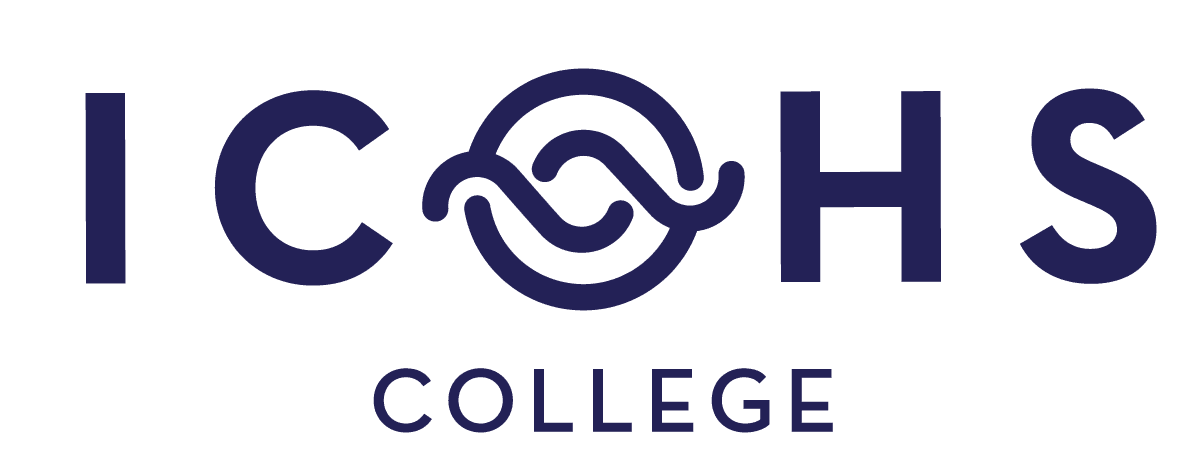
According to the US Bureau of Labor Statistics (BLS), the demand for IT professionals is higher than the average for all other jobs in the US. IT jobs are expected to grow at the rate of 15 percent or 682,800 new jobs between 2021 and 2031.
Jobs in information technology command a higher median annual wage of $97,430, as compared to the median annual wage of all other professions put together at $45,760. An associate’s degree in information technology is a 2-year program that can offer students a break in the industry to get valuable experience. It also provides the credits necessary to complete a bachelor’s degree in information technology without the 4-year commitment.
This comprehensive guide will explain the types of IT associate degree programs, admission requirements, course curriculum, career opportunities, and accelerated programs.
Types of IT Associate’s Degree Programs
The two types of associate’s degrees in information technology are AS (Associate of Science) and AAS (Associate of Applied Science). The AAS degree focuses more on preparing students for a specific career. It emphasizes practical vocational skills. The AS degree in information technology focuses on preparing students for higher studies.
Information Technology

Graduates with an IT associate degree can enter several lucrative careers, such as computer support specialists and customer support representatives. According to BLS, these careers can offer a median annual salary of $57,910 and $36,920, respectively.
Once the students get relevant skills and work experience, they can also qualify for specialized and higher-paying jobs, such as network security analyst, web developer, network analyst, and IT specialist.
Computer Science

An associate degree in information technology with a specialization in computer science can offer students work in technology-based solutions to solve problems. Students enrolled in computer science programs learn to secure information systems, improve organizational operations, and enhance a product or service.
A typical computer science associate degree includes programming languages such as C++ and Java, data structures, calculus, statistics, data structures, and computer organization.
Computer Information Systems

With a 2-year associate degree in computer information systems, students can focus on analysis, design, programming, and development techniques within a business.
They gain a broad knowledge of microcomputer applications, operating systems, database management, and object-oriented programming and learn about webpage applications, e-business technologies, database design, and server-side scripting.
Cybersecurity

An associate degree in information technology also opens doors for a career in cybersecurity. Students get a better understanding of Agile and web programming to handle cyber threats. They can finesse their skill further in operating systems and cloud computing, digital forensics, information systems security, and business network communication.
With sufficient experience and skill, students can pursue a bachelor’s degree in cybersecurity to enhance their careers.
Web Development

With the necessary industry experience, one can become a web developer, designing and coding websites for individuals and organizations. According to BLS, the median annual salary of a web developer is $78,300.
Some experienced web developers also produce verbal, visual, and audio content for the sites they create. Web developers often collaborate with designers and other IT professionals in the company.
Choosing the Right Associate’s Degree Program

An information technology associate degree opens up several career options. Students can transfer the credits of an associate’s degree into a future bachelor’s degree. In just 2 years, they get the necessary training and knowledge to enter information technology occupations. An associate’s degree gives them an edge over those with only a high school diploma or no formal training.
But, how to choose the right associate’s degree program?
You can research schools and courses offering an information technology degree based on the following criteria –
- Your area of interest.
- The degree’s relevance in the field of your choice.
- The courses in the program and their relevance to the career you wish to pursue.
- Credentials of the faculty and the program’s reputation in general.
- Quality of the facilities, career services program, and academic advisor services.
- Tuition fee and your ability to pay through own or family funds, financial aid, work-study scholarships, loans, or grants.
- Validity and transferability of the credits you earn in the associate degree to a bachelor’s degree for higher education.
While there are many associate degrees, not every information technology program will suit your needs, aspirations, and budget. Besides technical skills, the program should also encourage critical thinking skills, leadership, teamwork, innovation, and market exposure.
Admission Requirements and Application Process

To apply for an associate degree program, you need a high school diploma or an equivalent education such as GED. The college may ask for official transcripts from all high schools you have attended. They may also require professional resumes, letters of recommendation, and personal statements.
While most colleges accept a 2.0 GPA, prestigious ones may ask for a minimum 3.0 GPA. Many universities require standardized test scores from ACT and SAT, while others can waive them off if you have shown success in prior coursework.
The schools usually charge an application fee of $50 to $100. Members of special interest groups, such as veterans or active military personnel, can get the application fee waiver.
It is best to consult an admissions advisor and check if you meet the minimum criteria to proceed with the application process. Most colleges follow this application process –
- Complete the online application and upload all the information and documents the college asks for.
- Send any additional documents through email.
- Pay the application fee of the college you are looking at. This application fee is non-refundable. Some schools waive the application fee if you meet the eligibility criteria and get through the program.
- Complete the statement of intent that comprises basic questions about yourself, your aspirations, your background, and how the school fits your needs.
- If you have any discrepancies in your prior education, this is the time to explain it briefly.
- Some colleges may ask you to complete a simple assignment that assesses your basic technical skills and thought process.
- Submit a professional resume summarizing your academic qualifications, published work, relevant work experience, community work, professional networking, and public speaking experiences. While not all of these details may be mandatory, you can include all pertinent information that applies to your experience and qualifications.
- Provide official transcripts from all the institutions that you have attended. If you have attended multiple high schools, you can submit the graduate school’s transcript mentioning all the coursework. The requirements may differ for first-year applicants, transfer students, and those with high school equivalency tests. Please consult your academic advisor for more.
- Applicants whose first language is not English must submit a valid English language proficiency test, such as TOEFL, PTE, and IELTS.
- If you are a US citizen, you can apply for the Free Application for Federal Student Aid (FAFSA) to be eligible for financial aid.
- Check your online application status periodically.
- The college will share the decision with you electronically based on the points above and the information you provide.
Coursework and Curriculum

A typical IT associate degree includes industry-recognized certifications, such as CompTIA A+, CompTIA Network+, CompTIA Server+, and Cisco CCNA, for entry-level jobs. This gives students a fundamental knowledge of computer systems and software development. Here is a brief description of each of these industry certifications –
- Cisco CCNA – This validates the students’ abilities to manage and optimize advanced networks. It includes a fundamental understanding of networking, IP services, automation, security fundamentals, and programmability.
- CompTIA A+ – This certification helps demonstrate skills in information technology problem-solving. Students learn core technologies such as security, cloud computing, and database management.
- CompTIA Network+ – This teaches how to securely establish, maintain, and troubleshoot computer networks. Students can work with networks on any platform using specific skills that network professionals need.
- CompTIA Server+ – This is a global certification to demonstrate hands-on skills in installing, managing, and troubleshooting servers inside data centers, on-premise, and in hybrid environments. The accreditation is platform-agnostic and prepares students for a wide range of job opportunities.
The information technology students also get 5 general education courses that encourage behavioral skills for business and career development. The coursework could come as on-campus, hybrid, or online programs.
Importance of Hands-on Experience
The goal of an associate’s degree in information technology is to prepare students for the first step in the industry. This means they need enough hands-on experience while in college. While selecting the college, consider the amount of hands-on and industry experience and networking opportunities one gets during the course. Practical assignments during college can offer experience in essential skills such as project management and teamwork that will give students an edge in their job search.
Capstone Projects and Internships
Capstone projects are an integral part of a college degree. Students enrolled in an associate degree conduct independent or group research to devise an innovative solution for a real-world problem. This project can be challenging but stimulating. It is a final assessment that prepares students for the job market. Here is what a Capstone project does –
- Prepares students for the job market.
- Helps build a strong CV and differentiates students as potential candidates for particular jobs.
- Offers valuable practical experience that many employers seek.
- Helps hone specific skills that may get students into high-paying jobs and valued companies.
- It helps in a student’s overall development.
Students usually work in a group which teaches them to solve challenging problems and improve public speaking, relational abilities, planning, teamwork, etc.
Capstone Project Examples
Some of the examples of capstone projects in the IT associate degree are –
- Designing mobile apps that are safe from cyber threats.
- Finding the best programming languages for an application.
- Developing an automated system for market data analytics.
- Automated responses for IT emergency response and recovery.
Internships
If you are interested in earning a bachelor’s degree in a related program, you can consider an internship during your associate’s degree. The combination of practical work experience and academic coursework will likely confer an advantage and bolster the quality of their resume for further educational pursuits.
Career Opportunities and Salary Potential

According to the Bureau of Labor Statistics, the growth in information technology jobs will be higher than the average of all other jobs in the US. The median annual salary of IT occupations in 2021 was $97,430, which is much higher than the average of $45,760. An associate in information technology may qualify for jobs such as –
- IT support specialist.
- Network analyst.
- Web developer.
- Computer support specialist.
- Customer service representative.
- Computer network specialist.
- Computer programming specialist.
- Information security analyst.
- Systems manager.
- Network administrator.
- Computer hardware engineer.
- Computer technician.
- Systems analyst.
- Operating system analyst.
- Technical support specialist.
Accreditation and Program Quality

The research you conduct when exploring associate degree programs may yield numerous options, but it is imperative to note that not all programs possess the accreditation. It is crucial to select an accredited program, as it provides the following benefits:-
- Better academic quality – The quality of education is paramount, and accredited degrees ensure that. You gain access to highly qualified faculty members who possess the requisite teaching experience and expertise in addition to better academic courses. A college lacking accreditation may offer sub-standard education that can negatively impact career prospects and professional growth.
- Help in job search – An unaccredited associate’s degree may raise doubts in the minds of potential employers regarding its quality and reliability, leading to a lack of confidence in the candidate’s qualifications. Consequently, individuals who possess accredited associate’s degrees are often viewed more favorably by employers.
- High-quality further education – Credits from accredited institutions significantly facilitate the pursuit of higher education in reputed colleges. Obtaining a bachelor’s degree becomes easier with an accredited associate’s degree.
You can look for the following accreditations while choosing the associate degree program –
- Accrediting Council for Continuing Education & Training (ACCET).
- Bureau for Private Postsecondary Education (BPPE).
Other accreditations and approvals –
- Veteran Rapid Retraining Assistance Program (VRRAP).
- US Department of Education.
- US Department of Veteran Affairs.
- Workforce Innovation and Opportunity Act (WIOA).
- US Immigration and Customs Enforcement Student and Exchange Visitor Program (SEVP).
- California State Approving Agency for Veterans Education (CSAAVE).
Conclusion
An Associate’s degree in information technology programs is a great way to get your foot in the door if you have less time and are just starting your career. It not only prepares you for skilled jobs but also sets the stage for higher education, such as a bachelor’s degree.
It prepares you for a hands-on and high-tech career in software development, cybersecurity, network and server management, and more. With this knowledge, you can work in a variety of environments, including startups, corporates, and government departments, in challenging jobs.
If you are considering a career with high growth and pay opportunities, review the associate degree in IT at ICOHS. Call us at (858) 581-9460 or fill out the form for more information.
FAQ
Can You Still Be Successful with an Associate’s Degree?
An associate degree is an asset for students whose requirements do not align with the demands of a bachelor’s degree yet. Associate degrees are of shorter duration, are more affordable, and offer greater flexibility, enabling students to qualify for a bachelor’s degree more easily. An associate degree is a middle ground between a high school diploma and a bachelor’s degree that opens doors for high-paying jobs. The Bureau of Labor Statistics shows that those with an associate’s degree earn up to $154 higher weekly salary than someone with a diploma.
Some of the high-paying jobs that you can access with an associate degree are –
- Software engineer (Avg. annual wage – $90,850).
- Network engineer (Avg. annual wage – $78,837).
- IT specialist (Avg. annual wage – $59,515).
Can Two Associate Degrees Equal a Bachelor’s?
Obtaining two associate degrees can result in earning the same number of credits (120) as a bachelor’s degree. However, it is not possible to combine two associate degrees to fulfill the requirements of a bachelor’s degree, as the latter involves more challenging coursework that demands a higher level of academic rigor. Nevertheless, students who have completed an associate degree can use their course credits to meet the requirements of a bachelor’s degree, thus shortening the overall duration of their undergraduate studies and saving time.
Is a 2-Year Computer Science Degree Worth It?
The decision to pursue an associate’s or bachelor’s degree is contingent upon several factors, including career goals, time and financial investments, career commencement timeline, and personal interests. Many students opt for an associate degree program before pursuing a bachelor’s degree to gain a broader understanding of various subjects and to determine their area of specialization gradually. An associate degree in computer science offers an ideal educational environment for students to explore different specializations and subsequently make informed decisions about their career paths or higher education pursuits.
What Skills Can I Gain From a 2-Year Associate Degree in Information Technology?
The program prepares you for various technical and interpersonal skills required in the job market. These include –
- Communication skills to interact with managers and team members regarding projects, deliveries, problem-solving exercises, and more.
- Technical writing to explain the best practices, technical concepts, hardware, software, and other aspects of computer systems.
- Learning coding languages such as HTML, CSS, Java, Python, Ruby, and SQL for web development, software and application development, and database management.
- Acquiring basic skills in database management and being prepared for relevant jobs. Learning advanced and niche concepts in the industry.
- Learning data analysis and associated skills in mathematical statistics, data science, visualization tools, data management, and critical analysis.
- Advanced concepts, including linear algebra, trigonometry, and calculus.
By blending these with the knowledge of statistics and technology, you can get more career options.
Should You Get an Online Associate Degree in Information Technology?
Owing to their flexible nature, online programs have gained more acceptance in recent years. Online associate degrees in information technology may suit many students who want to keep their study hours flexible due to other commitments. However, you need higher self-discipline and motivation as compared to an on-campus program.
If you can spare time, we recommend taking an on-campus program. It helps you communicate with other students, teachers, and industry leaders in person. You can work on a project with other students and collaborate faster, as would typically happen in a company that hires you.










